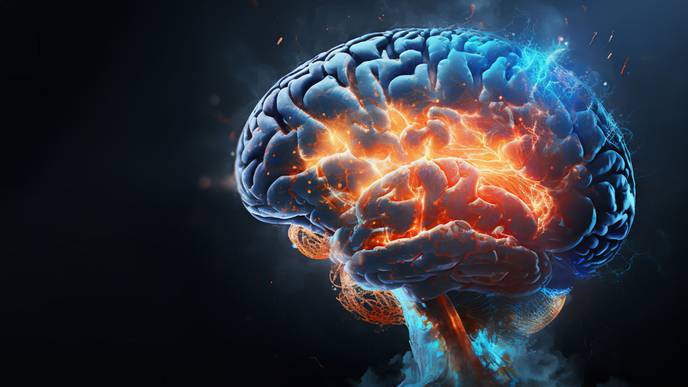ReachMD
Be part of the knowledge.™Is there a Genetic Link Between Endometriosis and the Brain?

FEW PEOPLE want to talk about women’s periods. The reluctance to speak plainly about “that time of the month” might explain why some gynaecological conditions are often undiagnosed. Take endometriosis, a chronic disease that causes period pain and excessive bleeding. The condition is common and debilitating: around 10% of women of reproductive age have it. Many wait ten years for a diagnosis. One study in Australia found that, on average, patients with endometriosis used 60% of their statutory sick leave to cope with the symptoms. Yet funding for research is surprisingly low, given the disease’s heavy toll.
Scientists have little understanding of what causes endometriosis and how to cure it. Doctors have noted that patients with the condition tend to suffer from other ailments, including migraines and mental disorders, but these links are still poorly understood. Scientists had long assumed that women with endometriosis were depressed because they suffered from chronic pain. But a study published in JAMA, an academic journal, argues that this is not the entire story: patients with endometriosis are more likely to have mental disorders even when accounting for pain, age and other confounding factors (see chart). Why?
To probe this the authors looked at genetic variations in more than 200,000 women, 8,000 of whom had been diagnosed with endometriosis. They found that some gene variants were more likely to be present in patients suffering from both endometriosis and a mental disorder, such as anxiety or depression. One specific variant affects a gene called DGKB, which is active in both the brain and female reproductive organs.
Sharing these genetic variants could mean that women with endometriosis may have a higher risk of developing depression and anxiety (and vice versa). This is unexpected: an underlying genetic mechanism would suggest that scientists know even less about how these diseases develop than they thought. Given that endometriosis is underdiagnosed, future studies with larger cohorts may provide a clearer picture.
The caveat is that correlation does not imply causation. What the findings support is a genetic overlap between endometriosis and mental disorders, but it is still not clear whether one of the conditions can cause the other.
Other recent discoveries have also strengthened what we know about the link between brain and body. Microbes in the intestine, for example, are now known to be correlated with anxiety, depression and cognitive impairments; molecules produced by gut microbes may travel to the brain. And a study published in Nature last year showed that the parts of the brain that are involved in fear can cause immune cells to enter or leave the bloodstream. This strengthens evidence that the brain could influence the body’s ability to fight infections. It is too soon to say whether these studies will lead to improvements in diagnostics and treatments. But a better understanding of the relationship between mental and physical health is a welcome first step.■
Facebook Comments